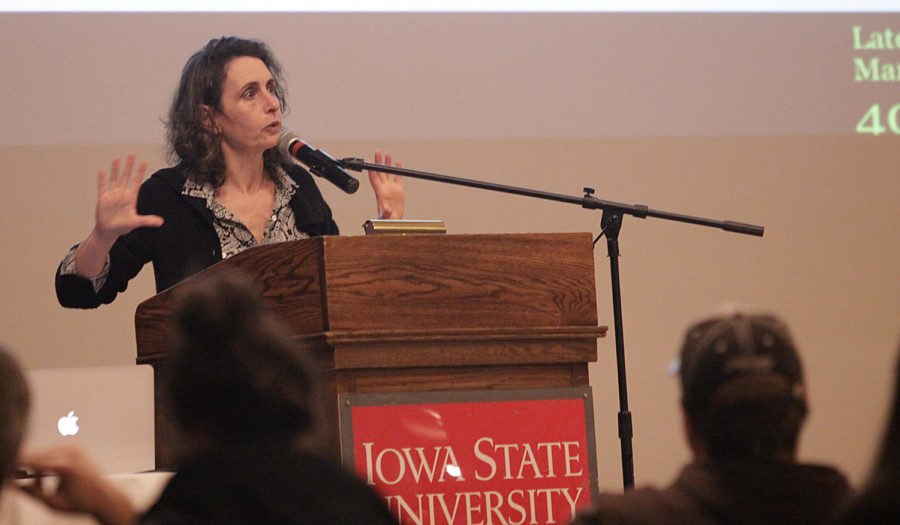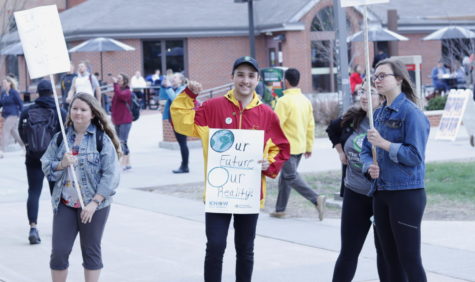Elizabeth Kolbert presents lecture on endangered species and the environment
Elizabeth Kolbert is a staff writer for The New Yorker, an award-winning environmental journalist and author. Elizabeth gives a lecture on her new book, “The Sixth Extinction: An Unnatural History” on April 3 in the Great Hall of the Memorial Union.
April 4, 2014
The Earth may be going through the sixth mass extinction in its history. Elizabeth Kolbert, an environmental journalist for The New Yorker and author of the book “The Sixth Extinction: An Unnatural History,” presented a lecture on her book at the Great Hall on Thursday night.
In her book, Kolbert compiles the findings of researchers in more than half a dozen disciplines. Kolbert followed geologists studying deep ocean cores, botanists in the Andes and marine biologists at the Great Barrier Reef to get the information to write her book.
During the lecture, Kolbert described the three ways that humans are impacting the planet to cause the endangerment of many species today: changing the atmosphere, changing the chemistry of the oceans and moving species around the world.
“We are changing the world very, very rapidly,” Kolbert said. “Every year, humans add 10 billion metric tons of carbon dioxide in the atmosphere. We are imitating the asteroid [that wiped out the dinosaurs].”
Kolbert also said that there are more 400 parts per million of carbon dioxide in the atmosphere according to measurements taken March 30.
The exchange of gases between the oceans and the atmosphere is also causing dangerous conditions for some species to live in.
“When [carbon dioxide] dissolves in water, it forms a weak acid and if you add enough of it to the oceans, we’re going to change its chemistry.” Kolbert said. “Most indications seem to suggest that if we continue on our present path, by the middle of the century, reefs will not be able to keep up. Reefs will stop growing and disintegrate.”
Ahmad Al-Shaibi, graduate student in the interdepartmental genetics program, said that Kolbert was able to present the facts she learned while working this book in a way that people without an extensive background in science and the environment could understand.
Kolbert was invited to speak at Iowa State as part of the World Affairs Series and Wildness, Wilderness and the Environmental Imagination Series.

















